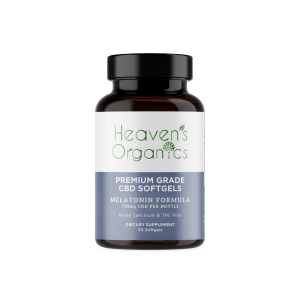What Is Melatonin?
Melatonin has long been known to help promote relaxation and a good night of sleep and we all need our beauty sleep.If we don’t get it, our mornings can be the start to one ugly day! A lack of sleep can negatively impact your life in many ways. Anyone who has gone to bed late or tossed and turned all night knows how much sleep impacts overall well-being. Too many people suffer from lack of sleep, whether it be from work-related stress, too much exposure to blue light or trouble staying asleep. So what is Melatonin?
Melatonin is a hormone secreted mainly by the pineal gland and also by some extrapineal sources.Melatonin is synthesized in the pineal from tryptophan in a series of coordinated enzymatic reactions. Melatonin secretion increases in the dark and inhibits light. The hypothalamus transmits luminous information from the retina to the pineal gland through the suprachiasmatic nucleus (SCN).
In humans, melatonin secretion begins shortly after sunset, peaks in the middle of the night (between 2 and 4 in the morning), and gradually decreases in the second half of the night. Approximately 80% of melatonin is secreted at night. During the day, the serum concentration is very low.
Infants for up to 3 months have relatively low levels of serum melatonin concentrations, which increase as the child grows, peak during four to seven years, and then gradually starts to decline.
Physiological Effects of Melatonin
The following are the physiological benefits of the melatonin hormone:
- It maintains the day/light cycle in humans by conveying the information to the body structures
- There is evidence that melatonin affects the stability of sleep/wake cycles, circadian rhythm, and the maintenance of core body temperatures.
- Melatonin plays a role in maintaining mood and behavior.
- Melatonin is involved in the regulation of blood pressure.
- Melatonin potentiates the immune response by:
- Increasing the levels of several cytokines
- Enhancing the T helper response
6. Melatonin is a potent antioxidant that detoxifies free radicals and prevents oxidative injury of the brain.
7. Melatonin acts on the gastrointestinal tract in the following ways:
- It reduces hydrochloric acid secretion and prevents ulceration of the mucosa.
- It reduces the oxidative effect of bile on the intestinal epithelium.
- Melatonin increases the bicarbonate secretion from the intestinal epithelium and the microcirculation of the gastrointestinal epithelium to promote epithelial regeneration.
8. Melatonin also regulates the inflammatory response and controls it
9. Melatonin may have an effect on the body mass and it might be responsible for preventing the deposition of body fat in the body with increasing age.
10. Melatonin stimulates bone formation and the synthesis of type 1 collagen. It also inhibits bone resorption by down regulating osteoclast activity.
Disorders of Melatonin Secretion
Disturbance in the melatonin levels has shown to play a role in several disorders.
Children with altered levels of melatonin show intellectual disabilities and low melatonin levels also play a role in learning disorders.
Several sleep disorders have also been linked to abnormal melatonin levels.
Decreased melatonin levels have also been recorded in patients with cardiovascular disease.
Therapeutic Benefits of Melatonin
Due to a vast array of physiologic effects of melatonin researchers have tried to utilize it as a therapeutic option.
Some have used Melatonin for the the following:
1.Melatonin is used to treat sleep disorders that arise in night shift workers and can also be employed to help with insomnia. It improves the onset and quality of sleep with mild hypnotic side effects.
2. Melatonin agonists used to treat insomnia also have antidepressant effects.
3. It is also used to help prevent jet lag.
Conclusion
Regular physiologic rhythms are integral for a stable internal body environment and melatonin plays an indispensable role in maintaining it. Adequate melatonin levels are necessary for optimal health. Melatonin is an endogenous hormone. When you buy melatonin, you are purchasing a supplement that mimics the hormone our body creates on its own. This is ideal for those with sleeping problems.
Our CBD Softgels with Melatonin are one of these products. Melatonin has long been used to help get a good night’s sleep and, when combined with CBD, it can offer serious support for encouraging feelings of increased relaxation and sound sleep all night long. While CBD alone might not make you tired, it can be a big help when combined with other natural compounds known to promote sleep.
*These statements have not been evaluated by the FDA. This product is not intended to diagnose, treat, cure or prevent any disease.



